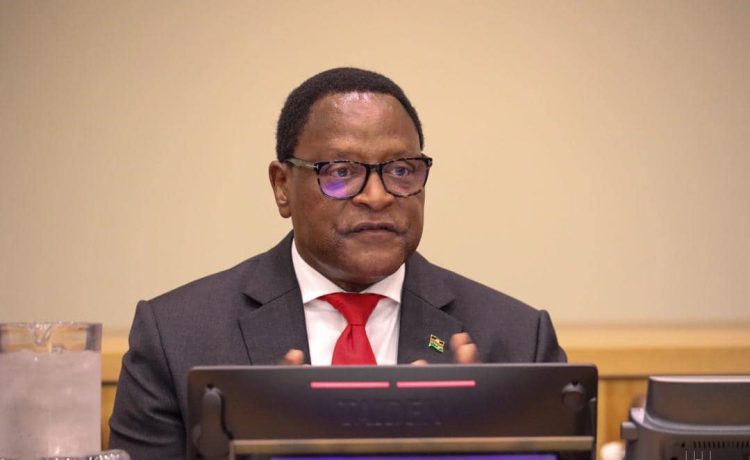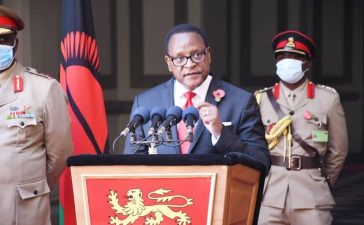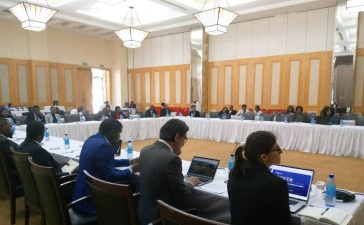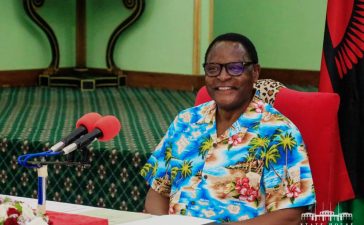Monday, 18th September 2023 was yet another busy day for the Malawi leader, President Lazarus Chakwera, who has led a lean delegation of 35 to the 78th session of the United Nations General Assembly in New York.
Among the events that defined his schedule was a climate-oriented caucus held under the 28th Conference of the Parties (COP28), a United Nations Climate Change Conference which has happened every year since 1995.
Truth be told, when it comes to climate change, the years 2022 and 2023 have been a split screen: As the world took several important steps to curb the climate crisis, its impacts continued to worsen in many territories including Malawi.
The Malawi leader notes in his speech delivered at the COP28 that “according to the Climate Change Index, Malawi ranks as one of the most vulnerable nations to climate change”.
He recounted that since the 1940s, Malawi has grappled with droughts and floods, with a threatening crisis that the frequency and severity of these extreme weather events are set to increase.
In recent years, Malawi has faced a series of tropical cyclones (talk of Cyclone Anna, Cyclone Gombe, etc), with Tropical Cyclone Freddy that occurred in March this year, being the most devastating in our history.
Cyclone Freddy “left a trail of destruction, affecting over 2 million people, with over a thousand either confirmed dead or missing, and 2,178 injured”, said the President in narrating the fate.
“If we are going to build resilience to new shocks and remain resolute with achieving our Sustainable Development Goals for 2030, we must address health system gaps from a climate management perspective”, he suggested.
Last year, in the weeks immediately following the devastation caused by cyclones Ana and Gombe, Malawi was hit by the worst cholera outbreak in history. By the start of this year, the outbreak had spread to all the districts in Malawi and claimed more lives than Covid-19.
This year’s cyclones in Malawi knocked out our main power station at Nkula and deprived resulting into loss of one third of our electricity generation capacity. Adverse effects included subsequent and somewhat irritating black outs which impacted many sectors of economy and basic livelihood. However, this particular mess has since been sorted out as Malawi is currently enjoying nearly-terminated blackouts or said differently: nearly-uninterrupted power supply.
In his statement, President Chakwera feared that the number of deaths, injuries and disabilities resulting from climate-related disasters will continue to rise unless steps are taken to urgently implement climate adaptation and mitigation measures which include strengthening healthcare systems and infrastructure to withstand climate-related disasters.
The Malawi leader suggested that strengthening healthcare systems and infrastructure is paramount in order to reduce interruptions in essential services and limiting community access to healthcare facilities and forcing the closure of vital healthcare facilities.
Chakwera applauded the UN for the decision to designate a Health Day at COP28, which he said “will undoubtedly shape the future of our planet, recognizing that health must be at the core of climate discussions”.
“This decision,” the Malawi leader said, “will encourage development of policies and strategies to combat climate change and their direct health implications”.
Considering that at the heart of the fight against climate change lies the need for adequate resources and predictable funding reconstruction of health facilities and rehabilitation of health programs, President Chakwera hinted that he will be hosting the Malawi Partners Conference in New York tomorrow evening, “to begin mobilizing international resources for reconstructing the systems we lost to Cyclone Freddy and other climate disasters that preceded it”.
Chakwera closed his remarks with a suggestion that there should be an undertaking aimed at “synergizing climate and health data in which COP28 can streamline the collection and sharing of climate and health data”, that would be necessary for empowering evidence-based policy decisions to protect public health.













